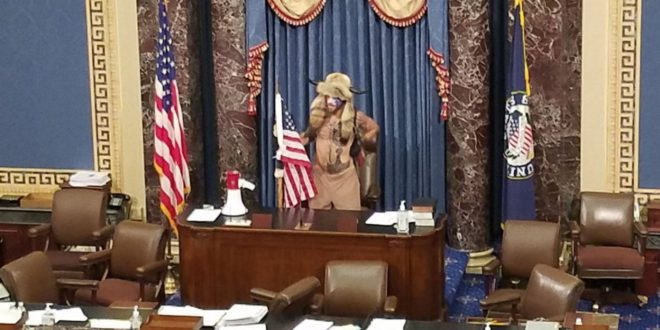U.S. President Joe Biden has said in a memo to the U.S. State Department that there were sufficient supplies of petroleum so other countries can reduce what they buy from Iran.
The White House is required to affirm every six months that there is enough oil supply globally to maintain sanctions against Iran that were put in place in 2012, during Barack Obama’s administration.
Biden’s statement comes in advance of a virtual meeting with China’s President Xi Jinping on Monday, in what is expected to be the leaders’ most extensive meeting since Biden took office.
China is the largest purchaser of Iranian oil. Chinese purchases of Iranian crude have continued this year despite sanctions that, if enforced, would allow Washington to cut off those who violate them from the U.S. economy.
The Biden administration is allegedly currently not enforcing those sanctions ahead of forthcoming negotiations with Iran to revive a 2015 nuclear deal that would let that nation sell its oil openly again.
“Consistent with prior determinations, there is a sufficient supply of petroleum and petroleum products from countries other than Iran to permit a significant reduction in the volume of petroleum and petroleum products purchased from Iran by or through foreign financial institutions,” Biden said in the memo.
Before occupying the White House, he had repeatedly renounced his predecessor Donald Trump’s policies which included the most draconian sanctions ever imposed on Iran with the aim of bringing its oil exports down to zero.
After taking office, however, Biden has signaled keeping the key elements of the sanctions regime intact as a pressure tool against the Islamic Republic.
The United States has recently resorted to pirating Iranian oil cargoes as it has failed in its various attempts to cut the country’s oil exports to zero through its regime of sanctions.
Iran’s Islamic Revolution Guards Corps (IRGC) said on Wednesday that it had prevented a piracy attempt on an Iranian oil cargo traveling in the sea of Oman last month.
The new oil-related sanctions by Biden would complicate the upcoming negotiations in Vienna with Iran over the removal of U.S. sanctions.
Russian Foreign Minister Sergei Lavrov said Friday Moscow will insist on the full implementation of the Joint Comprehensive Plan of Action (JCPOA) and the removal of all sanctions on Iran.
“On November 29, it is planned to resume talks of the signatories to the Joint Comprehensive Plan of Action on settling the situation around the Iranian nuclear program. We will insist on implementing the agreements reached under this document in 2015, on their full implementation,” he said.
“It means that the United States should resume the implementation of its commitments, including lift all the sanctions imposed in the context of the JCPOA,” Lavrov stressed.
The top diplomat said the Iran nuclear deal was among the topics discussed in Paris during the 2+2 meeting between Russian and French defense and foreign ministers.
The JCPOA, also known as the Iran nuclear deal, was signed between Iran, the five permanent members of the United Nations Security Council – Russia, the United Kingdom, China, the United States and France – and Germany in 2015.
The future of the deal was called in question after the United States’ unilateral pullout in May 2018 and Washington’s unilateral sanctions against Teheran.
After a year of patiently waiting for the remaining parties to help Iran bypass the sanctions, Iran said the Europeans were ignoring their obligations, making the deal in its current shape senseless. Tehran then began to gradually scale down its commitments under the deal.
President Joe Biden has repeatedly signaled his readiness to return the U.S. to the deal, but he has failed to take any meaningful action to undo Washington’s past wrongs.
On Friday, Iranian Foreign Minister Hussein Amir-Abdollahian said Tehran and the remaining parties to the nuclear deal can reach a “good agreement in a short time” only if the other sides adopt a “serious and positive” approach.
“The Islamic Republic has no intention to be locked in the stalemate remaining from the previous negotiations…I believe that if the opposite sides enter in the Vienna [talks] with a serious and positive approach, it will be possible to achieve a good agreement in a short time,” he wrote on an Instagram post.
This calls for the “effective and verifiable removal of sanctions and the return of the opposite sides to their full obligations” as per the nuclear deal, he added.
Washington’s behavior, including its imposition of new sanctions on Iran, has made the provision of its “objective guarantees” an unavoidable necessity, the foreign minister said.
Amir-Abdollahian said his deputy and Iran’s chief negotiator, Ali Baqeri-Kani, had held “explicit and useful” talks in European capitals this week.
Baqeri-Kani traveled to France, Germany, Britain and Spain and met with their officials, including EU deputy foreign policy chief Enrique Mora, who chairs the JCPOA Joint Commission on behalf of EU High Representative Josep Borrell.
Amir-Abdollahian said, “As I have repeatedly emphasized, the administration of the Islamic Republic of Iran will continue the policy on the expansion of balanced ties with countries based on mutual respect and common interests with seriousness and is determined not to tie the improvement of bilateral and multilateral economic cooperation to the issue of the JCPOA.”

 صراط عشق صراط عشق
صراط عشق صراط عشق



